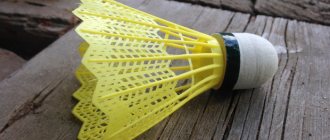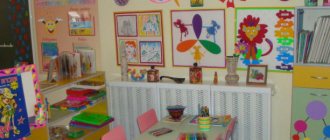Requirements for planning educational work
Social portrait of a student in the NGO system Read more: Basic forms and methods of organizing the educational process in NGO institutions
1.5.2. Requirements for planning educational work
When drawing up plans for educational work, requirements are determined, adherence to which ensures the quality of planning. (Appendix No. 2)
All requirements require the use in educational work of a wide range of factors that shape the student’s personality. By drawing up an annual plan, the teacher determines how students, their parents, teachers will be involved in the educational process, and how the city’s cultural and educational institutions will be used. Only with this approach does the plan become an important condition for the success of teaching activities. [5-p.30]
1.6. Educational work as a necessary condition for personality development
Education, like any other activity, must be streamlined. Technology as a whole represents a consistent and continuous movement of subjects and participants in the educational process through intermediate stages and types of activities.
For the success of educational work, taking into account the subjective experience of those being educated is no less important. Subjective experience in pedagogical science is understood as the individual’s established relationship to the world of things and people, to himself, directions of activity, natural potential, methods of performing actions, emotional reactions, a set of subjective values and needs. The need to study the content of the subjective experience of pupils, to take it into account in external influences on the individual, is one of the main specific features of education. [5-p.11]
Educational work involves communication and interaction between subjects. The student’s openness to educational influence depends on the authority of the teacher. The moral authority of a teacher is one of the important conditions for the effectiveness of educational work.
The main object of educational work is the student’s relationship with society. In turn, a person’s relationship to other people, society, the fatherland, and work are directly dependent on the student’s position in the system of family, intra-collective, and interpersonal relationships.
Educational work is designed to satisfy students’ need for communication. In turn, satisfying this need deepens and expands the students’ connections with other people, with society, and with the entire world around them. Diverse communication is a mechanism for developing ideas about different aspects of one’s personality and forming self-awareness. Communication develops a person’s need for another person, the ability to imagine oneself in the place of another, to experience common feelings with him.
Increasing the effectiveness of educational work presupposes the formation of a culture of teachers’ evaluation activities and the development of mutual evaluation activities of students. The involvement of students in self-assessment activities contributes to their entry into self-education and conscious adoption of a position of self-development. Self-education is the independent and active creative activity of the student. The task of educational work is to create positive motivation for inclusion in this activity. Pedagogical management of education involves periodically familiarizing students with popular scientific literature on issues of self-education, organizing self-assessment activities, familiarizing students with its results, and assistance in developing individual self-education programs. [3-p.3]
1.6.1. Self-education as a necessary component
educational process
Self-education is a person’s conscious and purposeful mastery of diverse social experience, self-improvement of the younger generation in various directions in accordance with the interests of the individual and society, a necessary condition and means of updating educational work in vocational educational institutions.
In the process of self-education, students must carry out the following actions:
· analyze your inner world through introspection, comparing yourself with others, the ideal, giving an assessment; highlight your “pros” and “cons” that you have to get rid of;
· set goals and develop a program of activities for self-improvement of some qualities and elimination of other qualities;
· participate in activities - labor, educational, professional, cognitive, etc. - to achieve assigned tasks with the help of volitional efforts;
· carry out self-regulation of this activity: self-analysis, self-control, self-assessment of its progress and results, adjust if necessary, i.e. clarify goals.
Few regularly engage in self-education, and few encourage them to do so, so only a few achieve noticeable success.
The self-education of the majority of students needs pedagogical stimulation, which involves managing the self-development of the individual, combining the goals of education and self-education. The teacher solves a whole range of problems: promotes the formation of adequate self-esteem in students, includes them in various activities and social relationships, participating in which they perform social roles. [1-p.471]
Stimulation is associated with resolving the main contradiction - between the achieved level of development of students and the requirements that society places on them. The process of stimulating self-education involves diagnosing self-education and organizing the diverse life activities of students. Diagnostics of self-education is the study of how consciously, purposefully, diversified, regularly, actively the students themselves develop their personality, what motivates them to do this or what interferes with this process.
Diagnostics allows the teacher to monitor everyone’s self-development and take a personal approach to students.
The formation of an attitude towards self-education occurs in the process of various activities of students: learning, playing, work, etc.
Teachers should promote those areas of self-education in which students’ efforts are insignificant, see the contradictions between the level of development of students and the requirements placed on them, adjust or shape their life goals, familiarize them with the means and techniques of personality development and ways of working on themselves.
Every educational institution must maintain conditions conducive to self-education. (Appendix No. 3)
Self-education is carried out in a team, therefore the teacher is required to organize the joint activities of all students, their collective efforts in solving common problems. In a friendly team, students develop basic moral and volitional qualities: responsibility, organization, hard work, determination, accuracy, etc., and the children mutually influence each other. [1-p.475]
Recently, informal youth associations have gained significant influence. Informal groups are characterized by a diversity of ages, a high level of organization, etc. The degree of influence of students on each other within informal groups is much higher than in a study group. Future young workers, I believe, should be included in a system of various collectivist relations.
Thus, self-education should permeate the entire educational process and extracurricular work of a professional lyceum, where an atmosphere of cooperation, mutual demands and a self-critical attitude towards oneself is created.
Social portrait of a student in the NGO system Read more: Basic forms and methods of organizing the educational process in NGO institutions
Information about the work “The essence of organizing the educational process in institutions of primary vocational education”
Section: Pedagogy Number of characters with spaces: 70964 Number of tables: 0 Number of images: 0
Similar works
The effectiveness of the educational process in primary vocational education institutions
107114
11
2
... in pedagogical theory and practice allows us to conclude that the complex of pedagogical conditions for the effectiveness of the educational process in institutions of primary vocational education, adapted to modern socio-economic circumstances, is insufficiently theoretically developed. Chapter 2. Implementation of a complex of pedagogical conditions for the effectiveness of the educational process in ...
The influence of a health-saving approach in organizing educational work on the formation of valeological literacy in primary schoolchildren
165200
11
1
...in each drawing of the subjects there are at least two people. Conclusion The purpose of this study was to identify the influence of a health-saving approach in organizing educational work on the formation of valeological literacy of junior schoolchildren in a temporary group. We suggested that a health-saving approach to organizing educational work with primary schoolchildren...
Establishment of a system of continuous professional education for convicts in a penitentiary institution
200776
10
1
..., as relatively conformal and non-conformal (i.e., as relatively independent and relatively non-independent). 2.2 Design of a system of continuous professional education for convicts in a penitentiary institution The external environment has an important influence on the continuous and stable development of education in the penitentiary system, i.e. the field in which educational...
Educational work in innovative schools
90515
4
9
... of different types and the implementation of different areas of educational work require the construction of diverse systems of its organization. [18, 374] Differing in content and focus, the educational work of innovative schools should be subject to a modernized system of principles of its organization and carried out in forms that meet the requirements of diversity, target orientation, adequacy of topics...




